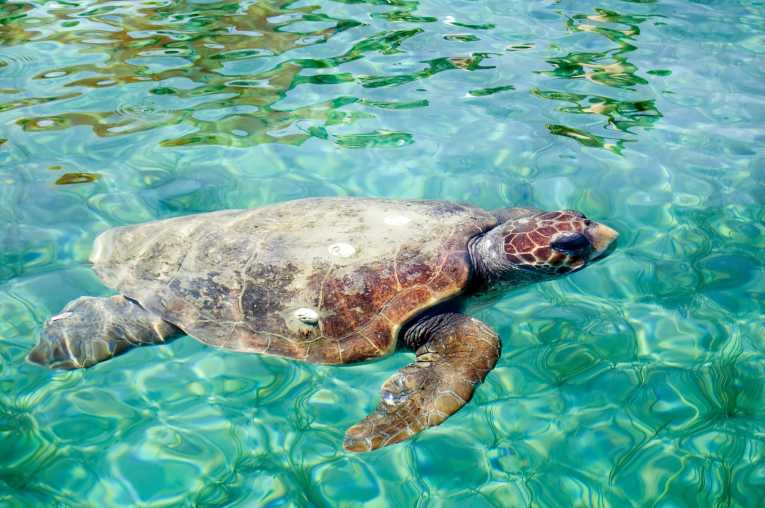2011 has been designated 'The Year of the Turtle' by Partners in Amphibian and Reptile Conservation (PARC). Turtles are currently disappearing from the planet faster than any other kind of animal and although they have been around for about 220 million years.
Turtles are found throughout the temperate and tropical world and in the open ocean. There are 270 known species in the world, of which 20% are found in North America. Nearly 50% of turtle species are classed as rare or are identified as being threatened with extinction. This is more than any other animal group.
One suggestion as to why this should be is that as the world warms up, this may be affecting turtle reproduction. The temperature of a turtle’s nest determines the sex of some species. A warm nest produces females, while a cooler nest produces males. Turtle scientists are working to understand how global warming may be affecting turtle reproduction.
However, since turtles have lived on the Earth for such a long period of time and have survived countless climate changes, global warming cannot be the chief cause of their current decline. The prime reason for this is human intervention.
Loss of habitat is an important contributory factor. Turtles need a very particular environment in order to breed and they also need an abundant food supply. The turtle breeding and feeding grounds have been subject to progressive encroachment and pollution such as from oil spills.
Wild turtles have been over-harvested with no thought given to their sustainability. In some parts of the world they are a food delicacy, they are used to prepare traditional medicines and they also become pets.
In developed areas they are particularly vulnerable when crossing the road, agricultural machinery mows them down and they get caught up in fishing nets.
Then there are the natural causes.
They are very prone to exotic invasion species and diseases, they are easy meat for a range of predators and their hybridisation has led to the loss of much of their genetic makeup. Global warming is also likely to be a contributory factor.
Dona Olsen, a research ecologist and co-chair of the PARC steering committee that is spearheading the Year of the Turtle campaign is passionate as to why we should be concerned about the loss of turtles.
Turtles are a symbol of our natural heritage, she writes. They hold a significant role in many cultures and in many countries in Southeast Asia they are used for food, pets and medicine.
They are also central to the food chain. Sea turtles graze on sea grass found on the seabed, helping to keep it short and healthy. Healthy sea grass is an important breeding ground for many species of fish, shellfish and crustaceans. The same applies to fresh water and land turtles, including tortoises. For example, turtles contribute to the health of marshes and wetlands, and are an important source of prey for many predators.
The only answer is to manage and protect turtles otherwise we will lose them.










